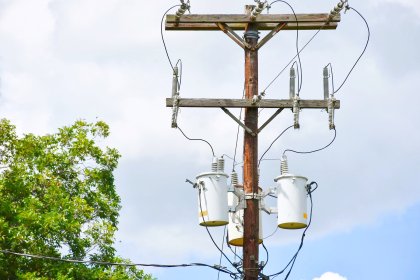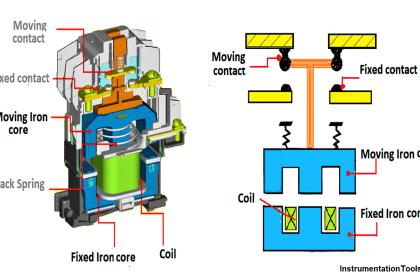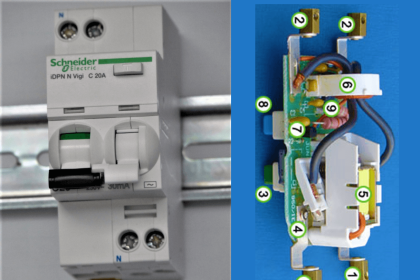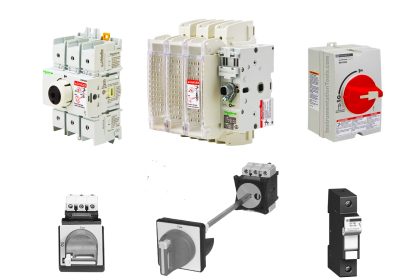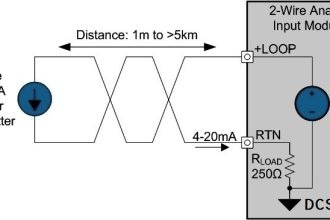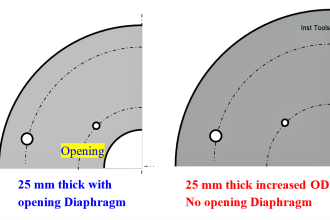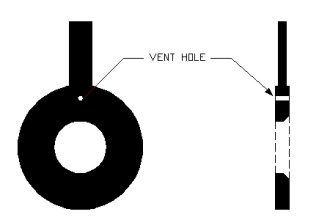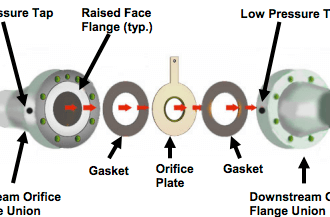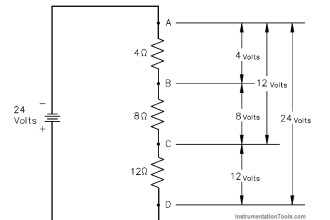In this post, we will understand the difference between alternator and generator.
According to Faraday’s law, current will be induced in the conductor if it is placed in a varying magnetic field. When the magnetic field is cut, current will be produced.
In this post, we will see two mechanical devices which produce electricity. They are an alternator and generator. Both are devices that convert mechanical energy into electrical energy.
Only in this aspect, both are same in working. But, they have major differences in terms of other points. Let us have a look at the differences between an alternator and a generator.
Before proceeding to the differences, let us first understand the working of both devices.
Alternator
An alternator has its field winding in the rotor and armature winding in the stator. A DC source is used to generate a permanent magnetic field.
So, according to Faraday’s law, as the magnetic field is intersected by the moving field windings, an emf is induced and current is thus produced.
Generator
However, in a generator, the same principle works in a reverse way. The armature winding is in the rotor and the field winding is in the stator.

Difference Between Alternator and Generator?
Now, we will proceed ahead to understand the differences.
Stationary Part and Rotary Part
In the alternator, the armature is stationary and the field winding is rotary. In the generator, the field winding is stationary and the armature is rotary. In either case, emf is induced as the magnetic field is generated by motion.
An alternator converts mechanical energy into AC power; whereas a generator converts mechanical energy into either AC or DC power.
Output Current and Efficiency
An alternator produces higher output current and has greater efficiency than a generator which comparatively produces less output current and has lesser efficiency.
So, an alternator generates much more energy than a generator.
Input Supply
An alternator takes the input supply from the stator whereas a generator takes the input supply from the rotor.
This is also one of the reasons that the brushes of an alternator last longer than a generator.
Dead Battery Charge
An alternator cannot charge a dead battery. This has not been tried and if you attempt to charge a battery from an alternator, there are chances that it may overheat it. But, this is not the case in a generator.
A generator can charge batteries and so, can be used to recharge dead batteries.
Output EMF and RPM
The output voltage of an alternator is variable, but the output voltage of a generator is constant.
Also, an alternator has a wide range of speed (RPM) whereas a generator has only a limited range of speed.
Size
An alternator requires less space and a generator consumes a large amount of area.
In this way, we found out that an alternator practically has more applications in electrical engineering than a generator; solely due to its many advantages.
If you liked this article, then please subscribe to our YouTube Channel for Instrumentation, Electrical, PLC, and SCADA video tutorials.
You can also follow us on Facebook and Twitter to receive daily updates.
Read Next:
